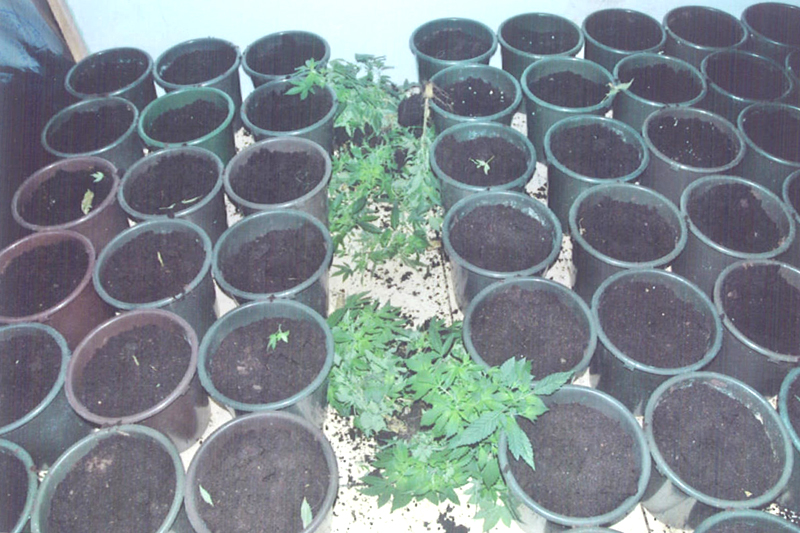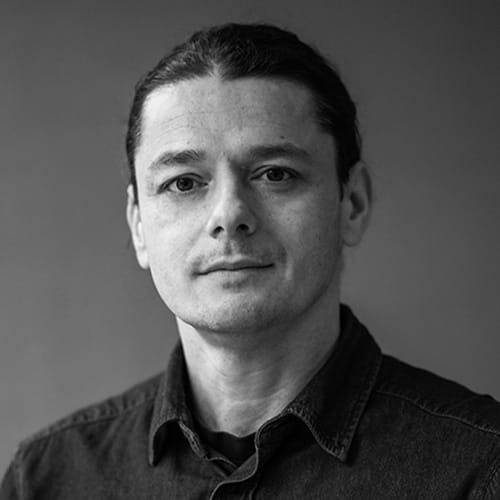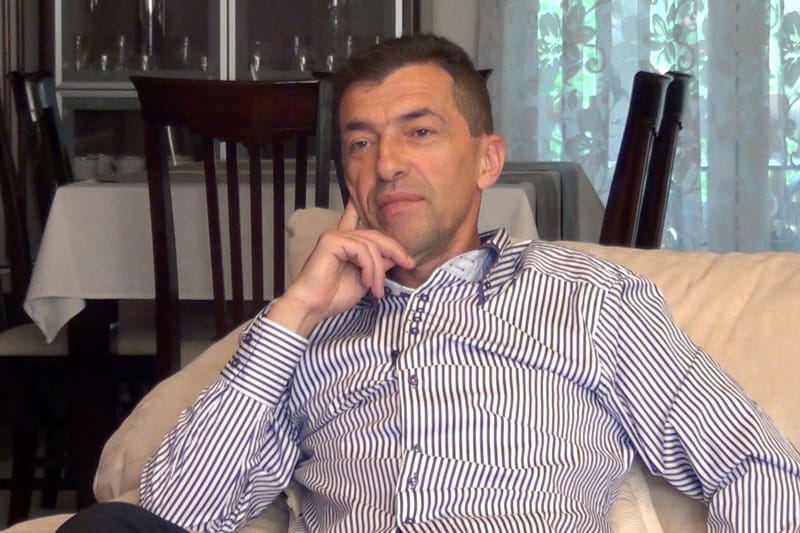Ramo Brkić, a former police commissioner of Una Sana Canton (USK), was sentenced to 11 years, while Senad Šabić and Satko Kekić received sentences of 10 and five years for production and trade in narcotics, abuse of office and corruption.
They must return all illicit proceeding: Brkić €40,000 and 17,500 KM, and Šabić 100,000 KM.
The verdicts ended a trial before the Court of Bosnia and Herzegovina (BiH) that lasted for a year and half. The prosecution was initiated by a major police operation code-named Kastel which the State Investigation and Protection Agency (SIPA) dating to December 2010. The detectives arrested 41 people, including police officials and USK officeholders, after several months of investigation.
Afterwards, 12 defendants pleaded guilty and the Court of BiH sentenced them to prison or probation, while seven persons were acquitted. One case was transferred to the Cantonal Court in Bihać.
Brkić Exposed by Accident
During the investigation into drug producers and dealers, SIPA detectives unexpectedly found that the former Cantonal Police Commissioner was involved. At the time SIPA was investigating a criminal group made up of Senad Šabić, Satko Kekić, Nedžad Kurtović and Zijad Muratović.

On the eve of trial, Kurtović and Muratović swapped the status of the defendants for that of key witnesses. They revealed all the details about the production and sale of drugs in exchange for immunity. This group cultivated marihuana in three USK locations since 2007. Every year they produced at least 100 kg of drugs which they sold in Western Europe.
SIPA uncovered Brkić when Kurtović texted him saying the police was on the way to a factory hall where they kept the drugs. Enver Okanović owned the hall located in Malo Založje near Bihać.
Kurtović told the Court of BiH that Brkić started the business with drugs in 2006. He explained that he had met Brkić in a bar called Pogy in Bihać. The commissioner asked him to get in touch with Muratović and Šabić who had been known to police as persons involved in the production and sale of drugs.
Muratović told the reporters from the Center for Investigative Reporting (CIN) in Sarajevo that Kurtović called him and asked him to get in touch with his old buddy Šabić.
Kurtović called him and asked him to get in touch with his old buddy Šabić
Kurtović told Muratović that he’d have Brkić’s protection for the job.
“Kurtović told me that he and Brkić did all kind of jobs together. I did not believe it because I thought that this was an attempt by the police to infiltrate us. And he told me to get in touch with Šabić so we could meet in Bihać,“ said Muratović.
he and Brkić did all kind of jobs together
And so it happened. Muratović and Šabić met with Kurtović and they went together to a restaurant Tale where Brkić joined them.
“After these conversations Šabić told me that the commissioner promised to cover for him, that he offered to find him a building where they would produce skunk. And, as it were, Ramo said that it was fine, that he’ll provide a protection,” Muratović told CIN.
After this meeting Kurtović found a hall which Okanović rented to them for 2,000 KM a month.
At the same time, Šabić promised Brkić €20,000 for two-month production of marihuana. Kurtović testified how he brought money to the commisioner’s home together with Šabić.
“He went out with a bike in his track suit. He took money without counting it and put it into the inside (…) part of the track suit,” said Kurtović.
He took money without counting it

Soon after he argued with Šabić about splitting the drug money and left the group. Šabić then aranged with Brkić to move the lab from Okanović’s hall. They rented Mustafa Kasumović’s hall in Donja Slapnica near Velika Kladuša for six months paying 12,000 KM for it.
Kasumović told CIN that Šabić, whom he has known from before the war, was going to cultivate truffles.
“He asked me to prepare the facilities. He said that all the windows must be closed with bricks with just one door being left open toward the north because the sun rays could not enter. I did all of that and it cost me between 3,500 to 4,000 KM. They came and paid for the construction work and I gave them the building as agreed,” said Kasumović.
He asked me to prepare the facilities
Drugs were produced until September 2008 when the police uncovered the hall complete with equipment for drug production and marijuana stems. By using his position Brkić gave Šabić and others enough time to harvest the full stock before the police uncovered the hall, according to the indictment.
They went searching for a new hall. Šabić found it with Kekić’s help in Gata kod Bihaća. The owner was Osman Vikić.
Šabić and Kekić installed the equipment for the production of skunk and they produced drug until the end of March 2010, when USK police raided the premises. The police found a complete lab for drug production and parts of 2,000 stems.
Šabić told CIN reporters that he committed no crimes the prosecutors pinned on him.
Securing the second term

In June 2010, Brkić was getting ready to run for the second time for the police commissioner. Unaware that he was the target of an investigation, he started gathering a team which would lobby for him. Some of them were: the chief of Bihać police station Emir Selimović; the chief of traffic police Ibrahim Hodžić; a researcher with the USK police investigation unit Mehmed Libić and Aris Mašić, an activist of the Party of Democratic Action.
A month before the election, Brkić put out a vacancy for hiring 40 police officers. He set up a commission and filled it with his trusted people: Selimović, Mašić and Libić.
According to evidence from the BiH Prosecutor’s Office, Brkić used the vacancy for bribing members of the Independent Board deciding about his re-election.
He told CIN reporters that has never influenced any of the Board’s members.

“I have never promised anything to anyone,” said Brkić.
I have never promised anything to anyone
Surreptitiously recorded telephone conversations between him and Aris Mašić do not corroborate his words.
In a recording CIN obtained, Brkić and Mašić can be overheard discussing the hiring of a candidate favored by Esad Begić, a member of the Independent Board. In exchange, Begić was to vote for Brkić’s re-election.
Brkić and Mašić can be overheard discussing the hiring of a candidate
After he secured Begić’s vote, Brkić continued gathering the needed majority, so he moved another Board member, Irfan Karabegović, from Cazin to a new job in Bihać. Brkić did this so he could demand Karabegović’s vote in return for sending him back to his old job.
In mid-August 2010, Brkić was impatiently awaiting the results of the vote. He received promises from members of the Independent Board. A key role coordinating and keeping him in the loop of what was going on in the board went to Sanela Abdulahović, the board’s secretary. Her task was to stamp every ballot in a way that told who voted which way. Thus, Brkić would know who to pay back.
CIN has a copy of surreptitious recording between Brkić and Sanela Abdulahović.
surreptitious recording between Brkić and Sanela Abdulahović
The story on the vacancy for hiring new police officers does not end here.
The indictment shows that Brkić and his associates continued to use the vacancy even after his re-election to solicit bribes from the candidates. In exchange, Brkić gave them answers to the examination questions and promised jobs.
He told CIN reporters that this was not true.
“If there is one man, one man out of those 600 candidates who gave me something and said: ‘Here, but you help me out,’ I am ready to put my name under the full indictment and admit to everything. If only one was to be found,” said Brkić.
CIN found that one man. Sanel Muranović told reporters, “You give between 5,000 and 10,000 KM, depending on the job – a police officer or a detective. We had to take a loan for this.”
He agreed to meet Brkić in a Bihać restaurant Rio Mare in order to give him 2,500 KM.
meet Brkić in a Bihać restaurant Rio Mare
“We met, had a coffee and then we went out. I gave him an envelope. I told him that I’ve never done this before. I never treated someone with so much money, and he replied: ‘No problem, just give me the envelope’. I took the envelope out of my pocket and he opened up his rain coat and stuffed the envelope in. He said that the results would be displayed in three to four days but added: ‘You got the job’, recalls Muranović.
No problem, just give me the envelope
Many other candidates had similar experiences. Brkić denies all the charges, saying that he did nothing he has been accused of.
“Had I not been convinced of it, I would not go to court and I would probably accept a plea bargain,” said Brkić.









